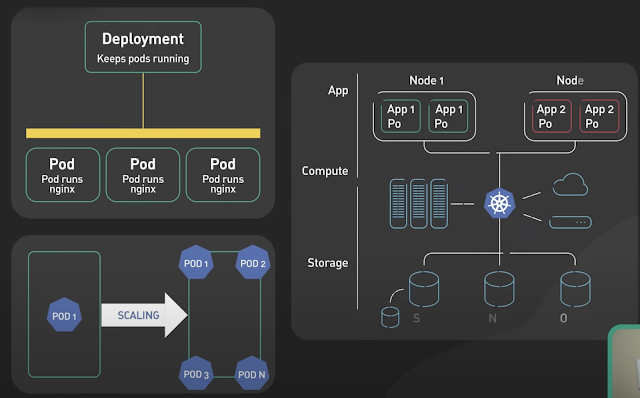There is issues like “Relay log read failure: Could not parse relay log event entry” many times on MySQLslave node. Most of time in our cases, it’s due to Linux Server crashed/restarted unexpectedly.
The detail error is like this:
mysql> show slave status\G
*************************** 1. row ***************************
Slave_IO_State: Waiting for master to send event
Master_Host: 146.23.1.34
Master_User: repl_user
Master_Port: 3306
Connect_Retry: 60
Master_Log_File: mysql-bin.002032
Read_Master_Log_Pos: 537558834
Relay_Log_File: mysql-relay-bin.003601
Relay_Log_Pos: 461487606
Relay_Master_Log_File: mysql-bin.002032
Slave_IO_Running: Yes
Slave_SQL_Running: No
Replicate_Do_DB:
Replicate_Ignore_DB:
Replicate_Do_Table:
Replicate_Ignore_Table:
Replicate_Wild_Do_Table:
Replicate_Wild_Ignore_Table:
Last_Errno: 1594
Last_Error: Relay log read failure: Could not parse relay log event entry. The possible reasons are: the master's binary log is corrupted (you can check this by running 'mysqlbinlog' on the binary log), the slave's relay log is corrupted (you can check this by running 'mysqlbinlog' on the relay log), a network problem, or a bug in the master's or slave's MySQL code. If you want to check the master's binary log or slave's relay log, you will be able to know their names by issuing 'SHOW SLAVE STATUS' on this slave.
Skip_Counter: 0
Exec_Master_Log_Pos: 461487460
Relay_Log_Space: 537764119
Until_Condition: None
Until_Log_File:
Until_Log_Pos: 0
Master_SSL_Allowed: No
Master_SSL_CA_File:
Master_SSL_CA_Path:
Master_SSL_Cert:
Master_SSL_Cipher:
Master_SSL_Key:
Seconds_Behind_Master: NULL
Master_SSL_Verify_Server_Cert: No
Last_IO_Errno: 0
Last_IO_Error:
Last_SQL_Errno: 1594
Last_SQL_Error: Relay log read failure: Could not parse relay log event entry. The possible reasons are: the master's binary log is corrupted (you can check this by running 'mysqlbinlog' on the binary log), the slave's relay log is corrupted (you can check this by running 'mysqlbinlog' on the relay log), a network problem, or a bug in the master's or slave's MySQL code. If you want to check the master's binary log or slave's relay log, you will be able to know their names by issuing 'SHOW SLAVE STATUS' on this slave.
Replicate_Ignore_Server_Ids:
Master_Server_Id: 120
1 row in set (0.00 sec)
In this case, we can check if the bin log at master node is still available.
Relay_Master_Log_File: mysql-bin.002032
...
Exec_Master_Log_Pos: 461487460
If it’s still available at master node, we can reset slave to that point, and let it recover by itself as follows:
Be careful, using Relay_Master_Log_File value in “show slave status\G” for master_log_file, not Master_Log_File value. They’re the same in this case.
mysql> stop slave;
Query OK, 0 rows affected (0.01 sec)
mysql> change master to master_log_file='mysqlbin.002032',master_log_pos=461487460;
Query OK, 0 rows affected (0.30 sec)
Check slave status again and again, make sure Exec_Master_Log_Pos is increasing. Seconds_Behind_Master should be decreasing. If master is too busy, the delay may still increase, but it’ll catch up sooner or later.
mysql> show slave status\G
*************************** 1. row ***************************
Slave_IO_State: Queueing master event to the relay log
Master_Host: 146.23.1.34
Master_User: repl_user
Master_Port: 3306
Connect_Retry: 60
Master_Log_File: mysql-bin.002032
Read_Master_Log_Pos: 496939207
Relay_Log_File: mysql-relay-bin.000002
Relay_Log_Pos: 56472
Relay_Master_Log_File: mysql-bin.002032
Slave_IO_Running: Yes
Slave_SQL_Running: Yes
Replicate_Do_DB:
Replicate_Ignore_DB:
Replicate_Do_Table:
Replicate_Ignore_Table:
Replicate_Wild_Do_Table:
Replicate_Wild_Ignore_Table:
Last_Errno: 0
Last_Error:
Skip_Counter: 0
Exec_Master_Log_Pos: 461543679
Relay_Log_Space: 35452156
Until_Condition: None
Until_Log_File:
Until_Log_Pos: 0
Master_SSL_Allowed: No
Master_SSL_CA_File:
Master_SSL_CA_Path:
Master_SSL_Cert:
Master_SSL_Cipher:
Master_SSL_Key:
Seconds_Behind_Master: 2782
Master_SSL_Verify_Server_Cert: No
Last_IO_Errno: 0
Last_IO_Error:
Last_SQL_Errno: 0
Last_SQL_Error:
Replicate_Ignore_Server_Ids:
Master_Server_Id: 120
1 row in set (0.00 sec)

